Masterclass : Open Science & Open Publishing (June 2024)
Schema della sezione
-
-
TopicNo academic idea or scientific result can contribute to advancing research unless it is shared. Yet, the way we share such knowledge is undergoing a revolution, mostly triggered by the internet. This revolution is known as open science (or open research), and its guiding principle is that academic research is a common good, funded by common means. Therefore its results should be accessible to anyone. This can include everything from the public access to academic publications to the public access to (raw) scientific data and computer codes. The basic recommendation is that research results should be as open as possible, and as closed as necessary. This places young scientists in the frontline when applying this recommendation to their own research, making them crucial actors in shaping the open science of today and tomorrow.
For many decades, research was mostly shared through peer-reviewed journals, published by independent (often commercial) publishers, and paid for by university libraries. Publishers organized anonymous peer-review (guaranteeing scientific quality), printing and distribution. University libraries paid for this through subscription charges, which allowed the library to make the journals available to the university’s staff and students. All researchers need to be aware of the limitations and benefits of this business model, as well as of the alternative models that are now emerging.
This training will introduce young researchers to practical tools and fundamental questions. Practical tools include how to find other researcher’s open-access data or software, and how to make your own data, software and publications accessible to others. More fundamental questions relate to all aspects of research; what and how much data should we share, when should we publish our results, what should a referee report aim to do, how do patents fit within open science, etc. Changes in the sharing of academic results have a direct impact on the evaluation of the quality of those results, and thus on the evaluation of the quality of researchers. As a result, young researchers should be prepared that it will impact their career options in research and in industry.
-
-
Alexandre Delmotte, Centre de Recherches Juridiques, UGA.
-
Learned societies, peer review, subscription model, prestige, author’s copyright, licences and embargoes.
Bart van Tiggelen, LPMMC, UGA & ex-editor-in-chief of Europhys. Lett.
-
-
-
Robert Whitney, LPMMC, UGA & Signe Seidelin Inst. Néel, UGA.
-
Robert Whitney, LPMMC, UGA & Signe Seidelin Inst. Néel, UGA.
-
-
-
Evelyne Miot-Desecures, Inst Fourier, UGA.
-
-
-
Open data and software : Why and How?
Louis Maritaud, GRICAD & Laurent Perrillat, BU-UGA.
-
-
-
Choosing a journal tailored to your research & traps to avoid (predatory journals, expensive journals).
Bart van Tiggelen, LPMMC, UGA.
-
-
-
Recruitment & evaluation in Social Sciences and Humanities.
Nabil Hathout, President of section 34 (Sciences du Langage) of Comité National de la Recherche Scientifique.
-
Recruitment & Evaluation in the CNRS
Laurence El Khouri, Deputy head of open research data department DDOR, CNRS.
-
-
-
When must you think of patents? Clarifying what is open and what is techno/industrially valorized.
Alexandre Delmotte, Centre de Recherches Juridiques, UGA.
-
-
-
